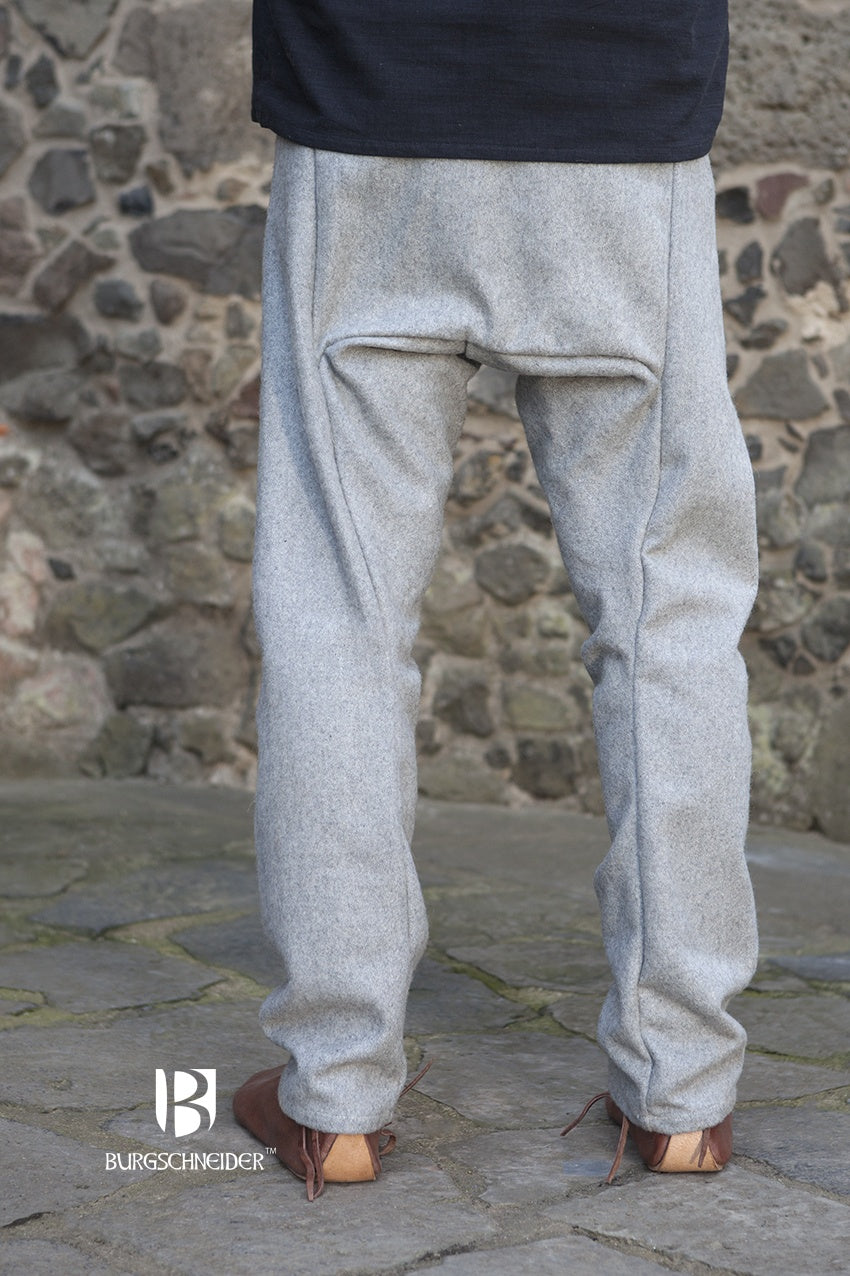1
/
of
4
Zeughaus
Wool Thorsberg Pants Fenris Grey
Wool Thorsberg Pants Fenris Grey
Regular price
$59.99 USD
Regular price
$0.00 USD
Sale price
$59.99 USD
Unit price
/
per
Tax included.
Shipping calculated at checkout.
No reviews
Couldn't load pickup availability
With our Thorsberg Pants Fenris, we have replicated the style of trouser fragments found in the Thorsberg moor.
According to common doctrine, the site found in the Thorsberg moor was a cult site of the god Donar/Thor in the settlement area of the Germanic tribe of the Angles. Most of the finds date from the 3rd and 4th century.
The Thorsberg pants are therefore a garment that can be clearly assigned to the Germanic habitat and thus a must for an authentic Germanic or Viking garment.
The excavated finds have a cut that is considered to be characteristic of the style of early medieval men's legwear in Europe and can still be found in archeological evidence in a similar form centuries after the Thorsberg items were created. For example, in illustrations of the Passio Kiliani, pants according to this basic pattern can still be found, as well as among the specimens from Haithabu, which date back to the 11th century.
There are different opinions about the dating of the pants. While the German Hosiery Museum assumes a production in the 2nd or 3rd century AD, the 4th century is often assumed as the time of origin.
The early medieval authenticity is further emphasized in the case of the Fenris model by the wool felt fabric used.
The winingas shown are not included and can be purchased separately.
According to common doctrine, the site found in the Thorsberg moor was a cult site of the god Donar/Thor in the settlement area of the Germanic tribe of the Angles. Most of the finds date from the 3rd and 4th century.
The Thorsberg pants are therefore a garment that can be clearly assigned to the Germanic habitat and thus a must for an authentic Germanic or Viking garment.
The excavated finds have a cut that is considered to be characteristic of the style of early medieval men's legwear in Europe and can still be found in archeological evidence in a similar form centuries after the Thorsberg items were created. For example, in illustrations of the Passio Kiliani, pants according to this basic pattern can still be found, as well as among the specimens from Haithabu, which date back to the 11th century.
There are different opinions about the dating of the pants. While the German Hosiery Museum assumes a production in the 2nd or 3rd century AD, the 4th century is often assumed as the time of origin.
The early medieval authenticity is further emphasized in the case of the Fenris model by the wool felt fabric used.
The winingas shown are not included and can be purchased separately.
Material
Material
Blazer (74% wool, 15% polyester, 7% polyamids, 4% misc. natural fibres)
Color
Color
Grey
Share




Size guide





